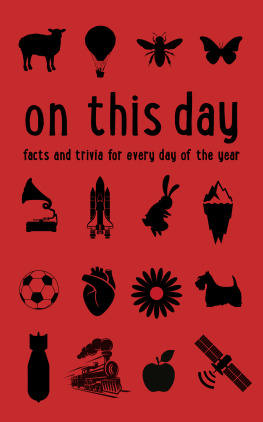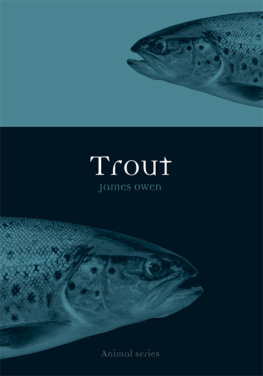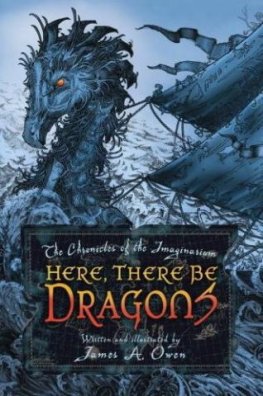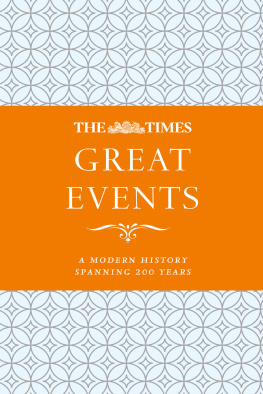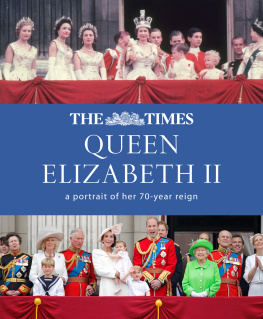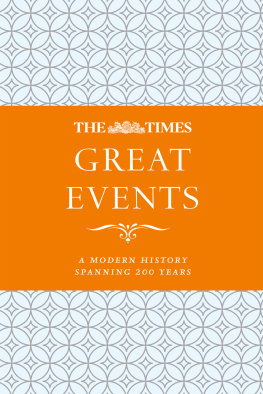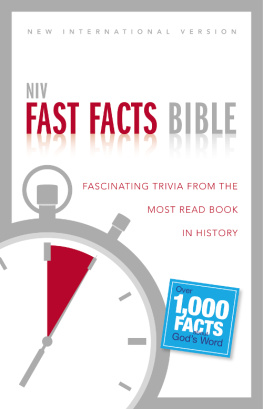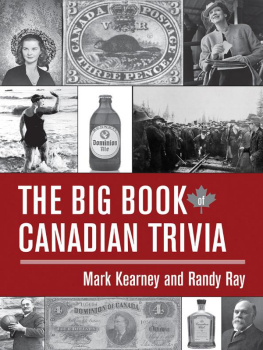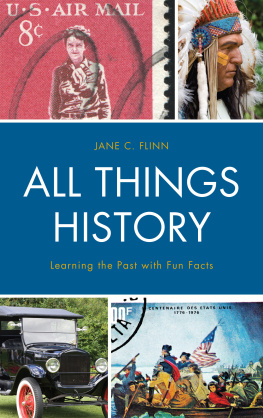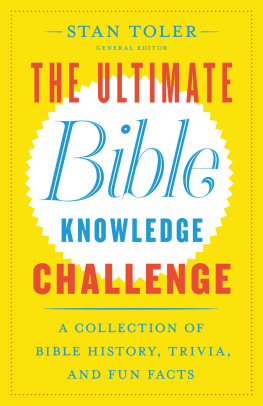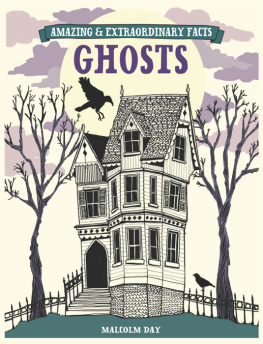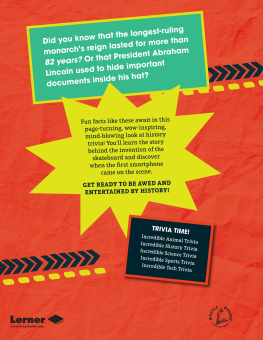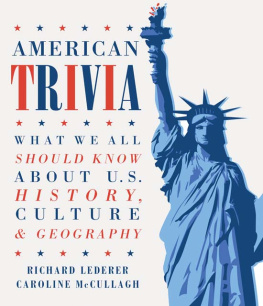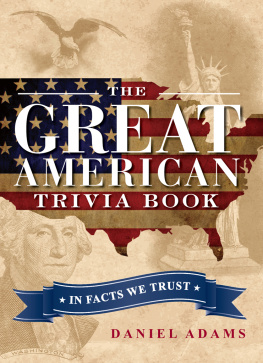Published by Times Books
An imprint of HarperCollins Publishers
Westerhill Road
Bishopbriggs
Glasgow G64 2QT
www.harpercollins.co.uk
www.timesbooks.co.uk
First edition 2018
This compilation Times Newspapers Ltd 2018
The Times is a registered trademark of Times Newspapers Ltd
All rights reserved under International and Pan-American Copyright Conventions. By payment of the required fees, you have been granted the non-exclusive, non-transferable right to access and read the text of this e-book on screen. No part of this text may be reproduced, transmitted, downloaded, decompiled, reverse engineered, or stored in or introduced into any information storage and retrieval system, in any form or by any means, whether electronic or mechanical, now known or hereinafter invented, without the express written permission of HarperCollins.
The contents of this publication are believed correct at the time of printing. Nevertheless the publisher can accept no responsibility for errors or omissions, changes in the detail given or for any expense or loss thereby caused.
A catalogue record for this book is available from the British Library.
Cover image ShabbyPie / Shutterstock
My thanks and acknowledgements go to Lily Cox and Robin Ashton at News Syndication and, in particular, at The Times, Ian Brunskill and, at HarperCollins, Gerry Breslin, Jethro Lennox, Karen Midgley, Kerry Ferguson, Sarah Woods and Evelyn Sword.
eBook Edition October 2018
ISBN 9780008317416
Version: 2020-08-26
In amongst the unchanging, comforting bric-a-brac of the Register section of each edition of The Times nestles the record of anniversaries of events which fall On This Day. The feature has the feel of having been there for ever, alongside the royal engagements and what the weather has in store. Yet in fact, in terms of the newspapers two centuries and more of history, it is a relatively recent innovation, with this selection compiled from those entries which have appeared during the last decade or so.
They are not meant to represent a complete history of the world. Rather, they are a random, often quirky, frequently diverting list of things you feel better for knowing. That said, the collective mind that put them together seems to have had some idiosyncratic interests, including notable firsts in astronomy, key moments in Britains withdrawal from empire, and opera premieres. The broad-minded reader of The Times naturally takes all these in his or her stride. What can the rest of us learn from this midden heap of the past?
Perhaps it is that the past is just that. Rooting about in it disinters things which were once prized but are now of little account. Events which made headlines 40 skaters drowned in Regents Park are long forgotten. How quickly things change, one might think (maybe contemplating an entry whilst adding to ones own midden heap), a thought soon followed by: Did that happen 20 years ago already?
And then there are the secret harmonies one fancies hearing in times dance music. Can it be just coincidence that Sir Winston Churchill died on the same day of the year (January 24th) as not only his father but also Sir John Vanbrugh, architect of the Churchills family seat at Blenheim? That Rolls-Royce should commission its proud emblem Spirit of Ecstasy exactly 60 years to the day before declaring bankruptcy? What unseen force sent King Louis XVI to the guillotine on the anniversary of its inventor having proposed it as a humane method of execution?
Another newspaper now itself passed into history once claimed of its contents that All human life is here. That may not be precisely true of this selection, but it is good to be reminded of the breadth and diversity of mankinds achievements. Sometimes one can even be surprised by them: Mary Shelley wrote Frankenstein when she was 21; Sid Vicious rose to fame with the Sex Pistols when a year younger; the first public flushing lavatory for women opened in London as early as 1852.
So, read on and find your own path through the past, be it by lucky dip, joining the dots, using the date index at the back of the book or through dates that mean something to you. Discover something that prompts you to learn more, or to think I never knew that!, a fact to share with a friend and make you muse upon all that has gone before us down the ages: a glorious gallimaufry of happenings.
And then turn the page and read the Obituaries.
James Owen
1785 The Daily Universal Register was founded. It was renamed The Times on January 1, 1788.
1801 the Acts of Union between Great Britain and Ireland came into force.
1901 the Commonwealth of Australia was established, allowing the nation to govern itself.
1962 the Beatles were not signed by Decca Records because guitar groups were on the way out.
1973 Britain entered the Common Market, later named the European Union.
1999 the euro was introduced, giving 11 countries a shared currency the first time since the Roman Empire that much of Europe had had one.
17 Roman poet Ovid died, a decade after mysteriously being banished to modern-day Romania by Emperor Augustus.
1769 the Royal Academy met for the first time, with Sir Joshua Reynolds as president.
1896 Leander Starr Jameson surrendered after his raid failed to provoke an uprising by British workers against the Boers in the Transvaal.
1959 the Russians launched the rocket Luna 1 on the first close fly-by mission to the moon.
1971 66 football fans were killed in a crush at Ibrox Park, Glasgow.
1981 police arrested serial killer Peter Sutcliffe, the Yorkshire Ripper.
1521 the Pope excommunicated Martin Luther, founder of Protestantism.
1892 JRR Tolkein, author of The Hobbit and The Lord of the Rings, was born.
1924 Howard Carter discovered the sarcophagus of Tutankhamun in the Valley of the Kings, Egypt.
1946 William Joyce (better known as Lord Haw-Haw), broadcaster of Nazi propaganda, hanged.
1980 Joy Adamson, wildlife conservationist and author of Born Free, was murdered.
1981 Princess Alice, Countess of Athlone, the last survivor of Queen Victorias 37 grandchildren, died aged 97.
1990 Panamas leader Manuel Noriega surrendered to US forces after ten days under siege in the Vatican Embassy.
1642 King Charles I entered Parliament with soldiers in a bid to arrest five MPs, sparking the English Civil War.
1643 Sir Isaac Newton, physicist and mathematician, was born.
1877 Cornelius Vanderbilt, financier and transport magnate whose steamship service flourished with the 1849 Gold Rush, died.
1948 after more than 100 years of British rule, Burma became an independent republic.
1951 Chinese Communist and North Korean troops captured Seoul during the Korean War.
1967 world speed record breaker Donald Campbell was killed in Bluebird on Coniston Water, Cumbria, during a record attempt.
1066 Edward the Confessor, King of England since 1042, died.
1592 Shah Jahan, Mogul emperor of India, who ordered the building of the Taj Mahal as a mausoleum for his wife, was born.
1855 King Camp Gillette, inventor of his eponymous safety razor, was born in Wisconsin.
1941 Amy Johnson, record-breaking aviator, died after her aircraft crashed in the Thames estuary.
1968 Alexander Dubcek became First Secretary of Czechoslovakias Communist Party, ushering in the Prague Spring.

